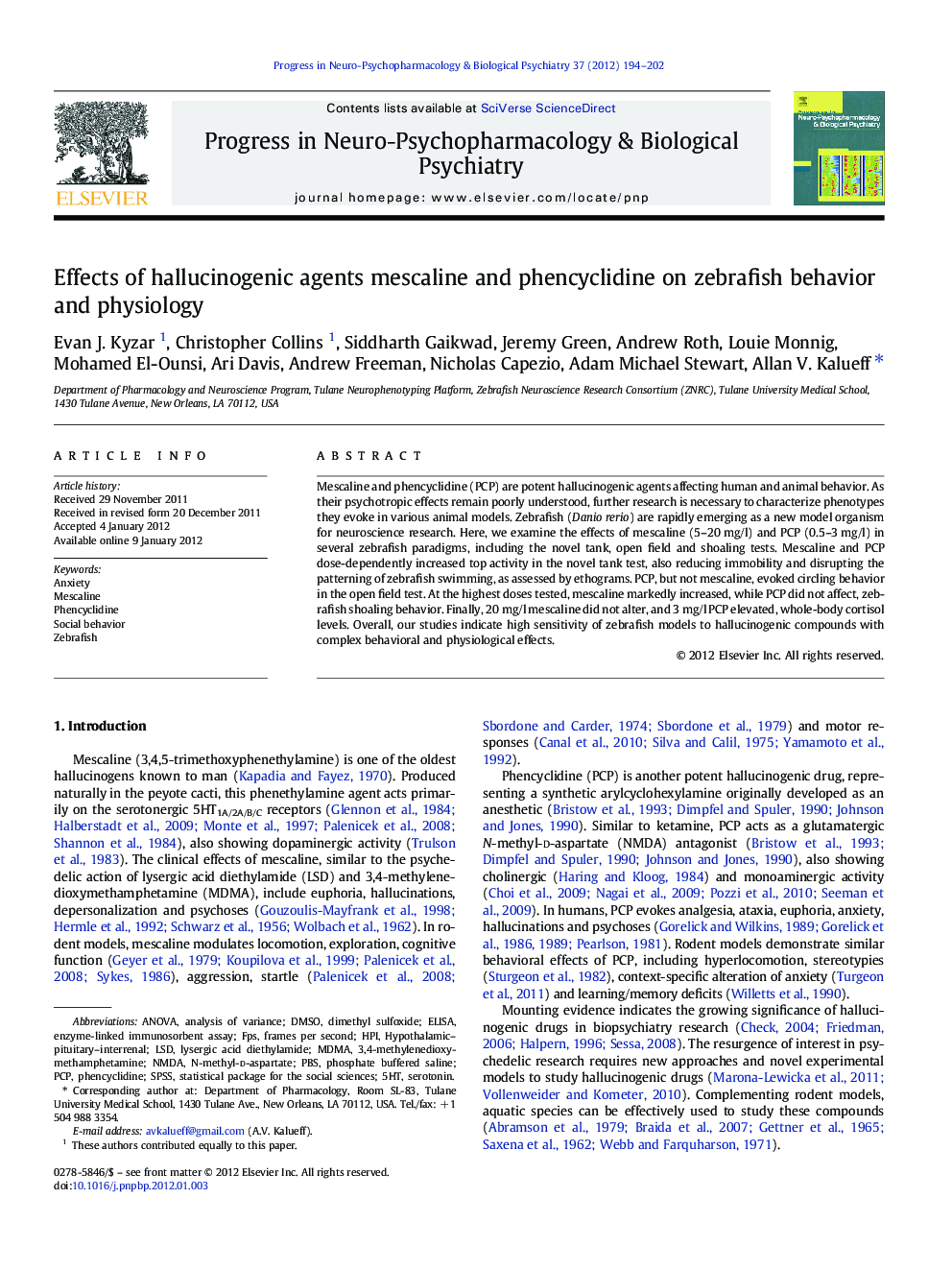| Article ID | Journal | Published Year | Pages | File Type |
|---|---|---|---|---|
| 5845019 | Progress in Neuro-Psychopharmacology and Biological Psychiatry | 2012 | 9 Pages |
Mescaline and phencyclidine (PCP) are potent hallucinogenic agents affecting human and animal behavior. As their psychotropic effects remain poorly understood, further research is necessary to characterize phenotypes they evoke in various animal models. Zebrafish (Danio rerio) are rapidly emerging as a new model organism for neuroscience research. Here, we examine the effects of mescaline (5-20Â mg/l) and PCP (0.5-3Â mg/l) in several zebrafish paradigms, including the novel tank, open field and shoaling tests. Mescaline and PCP dose-dependently increased top activity in the novel tank test, also reducing immobility and disrupting the patterning of zebrafish swimming, as assessed by ethograms. PCP, but not mescaline, evoked circling behavior in the open field test. At the highest doses tested, mescaline markedly increased, while PCP did not affect, zebrafish shoaling behavior. Finally, 20Â mg/l mescaline did not alter, and 3Â mg/l PCP elevated, whole-body cortisol levels. Overall, our studies indicate high sensitivity of zebrafish models to hallucinogenic compounds with complex behavioral and physiological effects.
⺠Mescaline and phencyclidine are potent hallucinogenic drugs. ⺠Zebrafish are becoming a promising model for investigating hallucinogenic compounds. ⺠Mescaline (20 mg/l) increases top swimming and shoaling behavior in zebrafish. ⺠Phencyclidine (3 mg/l) induces circling and elevated cortisol levels in zebrafish.
